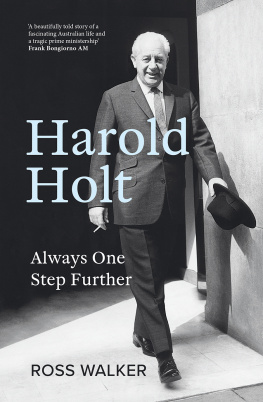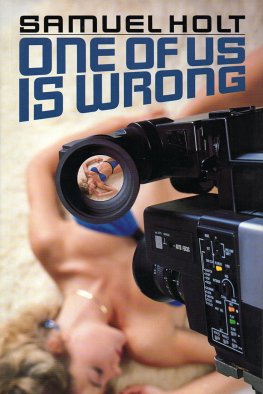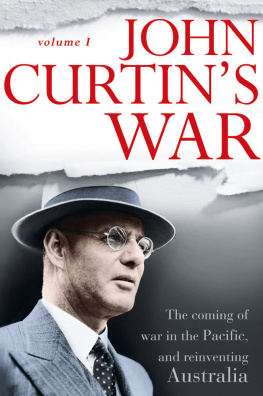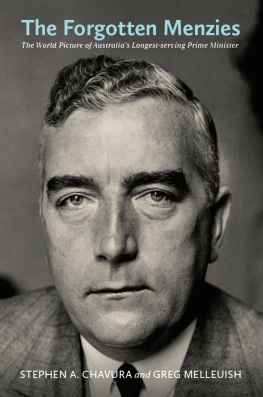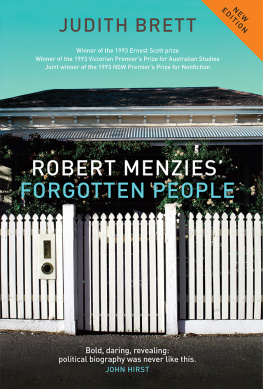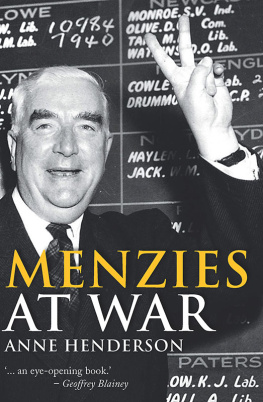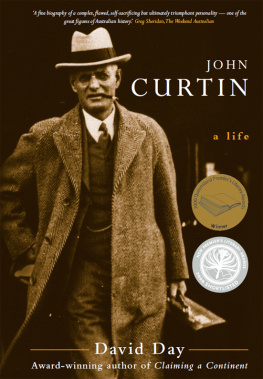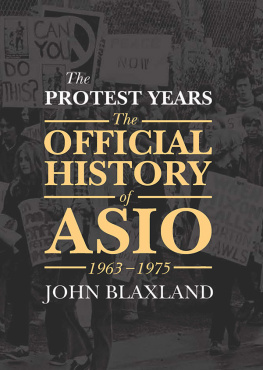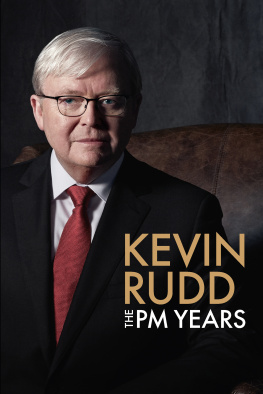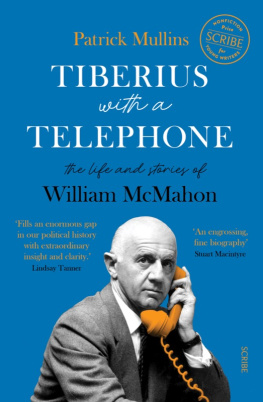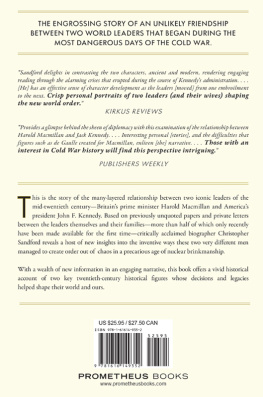PRAISE FOR HAROLD HOLT
Ross Walker has uncovered an intriguing blend. In public life an industrious, moderate and cautious consensus-builder with a keen sense of public duty, Harold Holt displayed a taste for reckless behaviour in private that would bring his downfall at wild Cheviot Beach. A beautifully told story of a fascinating Australian life and a tragic prime ministership not only in its bizarre end, but in the entanglement of an amiable, easygoing man in poisonous political rivalry, and a brutal and contentious war in Vietnam.
Frank Bongiorno AM, professor of history, Australian National University
Walker has a rare ability to sift away all but the gold this book is full of intriguing vignettes and brilliant details. Together, they tell the story not only of Holt, but of many varied men and women who came into his orbit, and of the times they lived through. At times, it has the quality of a fairytale, with all the wonder and brutality that entails. I had no particular interest in Holt, so did not expect to be fascinated, or moved but I was.
Sean Kelly, author ofThe Game: A Portrait of Scott Morrison
Published by La Trobe University Press in conjunction with Black Inc.
2224 Northumberland Street
Collingwood VIC 3066, Australia
www.blackincbooks.com
www.latrobeuniversitypress.com.au
La Trobe University plays an integral role in Australias public intellectual life, and is recognised globally for its research excellence and commitment to ideas and debate. La Trobe University Press publishes books of high intellectual quality, aimed at general readers. Titles range across the humanities and sciences, and are written by distinguished and innovative scholars. La Trobe University Press books are produced in conjunction with Black Inc., an independent Australian publishing house. The members of the LTUP Editorial Board are Vice-Chancellors Fellows Emeritus Professor Robert Manne and Dr Elizabeth Finkel, and Morry Schwartz and Chris Feik of Black Inc.
Copyright Ross Walker 2022
Ross Walker asserts his right to be known as the author of this work.
ALL RIGHTS RESERVED.
No part of this publication may be reproduced, stored in a retrieval system, or transmitted in any form by any means electronic, mechanical, photocopying, recording or otherwise without the prior consent of the publishers.
Every effort has been made to trace copyright holders and obtain their permission for the use of copyright material. The publisher apologises for any errors or omissions and would be grateful if notified of any corrections that should be incorporated in future reprints or editions of this book.
9781760643836 (paperback)
9781743822555 (ebook)

Cover design by Akiko Chan
Cover photo Leonard Burt, Hulton Archive / Getty Images
Text design and typesetting by Typography Studio
For Anne Mancini and John Gellie
Prologue
M Y AIM IN WRITING THIS BOOK HAS BEEN TO STRIKE a midway point between biography and narrative non-fiction history told as a story. It is the story of Harold Holts public and personal life. Though Holt was happy to talk about his love of the sea and about his life in politics, he said and wrote little about his most personal feelings. When he travelled he kept diaries, but in these he focused mainly on the people and places he encountered along the way rather than on his thoughts and feelings. Little of what has been written about him to date has given much idea of the inner life of the man.
This book is an attempt to fill that gap. It asks how Harold Holt may have become the man he was and why he may have done some of the things he did. There is a caveat here, however: Who knows why any man does anything? asked John Jess, one of Holts parliamentary colleagues. Holts friend and president of the Portsea Surf Life Saving Club, Milton Napthine, implicitly asked the same question: He knew damn well that the surf was too high. God only knows why he went in for a swim. Indeed, agrees Tom Frame, after quoting this statement in his biography of Holt.
Harold Holt was a man of contradictions. He was mild-mannered yet passionate; his wife Zara said that everything for Harry has to be lived with his whole heart. He was measured, but he sometimes exceeded sensible limits and could not leave well enough alone hence my subtitle, Always One Step Further. When considering a course of action in politics, he often asked the question: Does it make good sense? Yet he often acted in ways that did not make good sense. He was an extrovert who enjoyed parties and other social life, yet he savoured the solitude of the underwater world. He was life-affirming, yet sometimes he seemed self-destructive, as if inwardly compelled to imperil his physical safety. These are the tensions which drove his life, and which drive the narrative of this book.
No individual can be fully known. When we try to understand the motives underpinning a persons behaviour, we are always operating in the orbit of surmise. And so I have sometimes taken the liberty of surmising, using words such as perhaps or phrases like he might have or he must have to indicate this. That said, I have based any surmise on objective sources; I have never bent the known history.
Readers may ask: How do we know the author is not making this up? To this I reply that all events and incidents related in the book are factual and all the people about whom I have written actually existed. This is not a work of fiction. I have drawn my material from books and articles about Holt and Australian politics and history; from the Australian parliamentary record, Hansard; from Australian daily newspapers and magazines; from the Holt collection in the Australian National Archives in Canberra; from the archives of Wesley College and the archives of Queens College at the University of Melbourne; from the travel diaries of Harold and Zara Holt; and from discussions with people who met or knew Holt. I have taken all dialogue from what has previously been printed, or related to me in the course of interviews.
Keeping in mind Sren Kierkegaards comment that though life must be lived forwards, it can only be understood backwards, I have given considerable attention to Holts early years, before his public career began. We cannot understand people without trying to understand the wider context of their lives, including those around them and the times in which they lived. Therefore, I have included some detail about those close to Holt in these early years, many of whom later became part of his life in politics.
I hope that this book will read as a snapshot of earlier times in Australia and, though non-fiction, will read like a story. Robert A. Caro, multi-volume biographer of Lyndon Johnson, discusses his methodology as a biographer thus: Youve got to have the facts, and youve got to get them right, but you cant forget that youre telling a story... Are you making the reader see the scene? Can you see the scene?
This objective holds good, I believe, whether one is writing fiction, non-fiction, or any genre between the two.
PART ONE
UPHILL
Another World
The sea, once it casts its spell, holds one in its net of wonder forever.
Jacques Cousteau
It is a strange necessity to dive
Beyond the comfortable land, to seek

